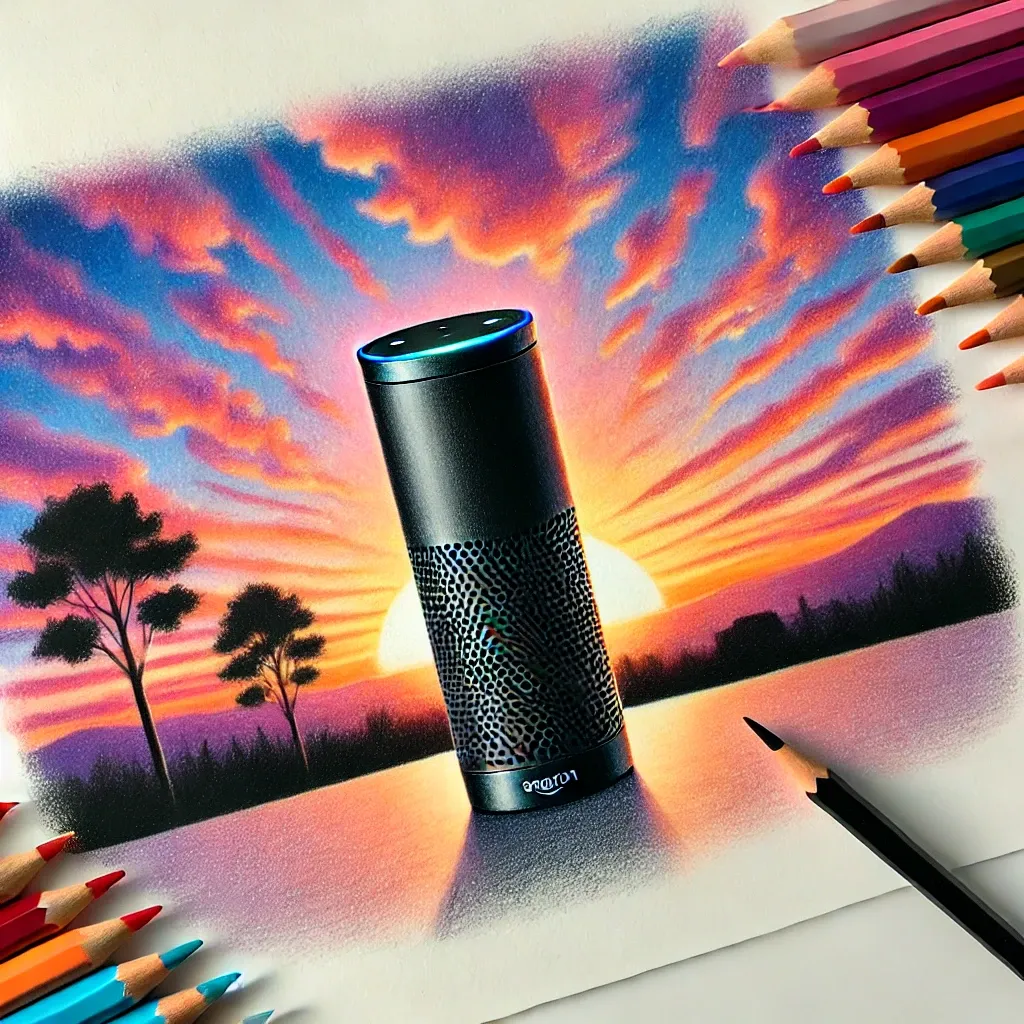Will the New, Delayed Alexa Truly Be 'Remarkable'?

Alexa, where is the new Alexa?
Amazon is preparing to launch its delayed overhaul of personal voice assistant Alexa in October, according to internal documents obtained by The Washington Post, as it faces new competition from artificial intelligence voice assistants from rivals.
Access to the upgraded version of the assistant will require a paid subscription, the documents said.
The release, scheduled to occur just weeks before the presidential election, will include a new “Smart Briefing” feature that provides daily, AI-generated summaries of news articles selected based on a customer’s preferences, the documents said.
This will be over a year since Amazon first touted the new Alexa at an event and noted that it would be shipping soon. Aside from some lackluster new TV capabilities, we haven't seen much and the fact that the service clearly missed internal deadlines doesn't seem like a great sign. Amazon clearly needs to ship, lest they be lapped even by slow (but steady) Apple. Apple! Not to mention Meta, Google, OpenAI and the rest. It's not a great look for a company that was once perceived to be quite far ahead in the space.
Of course, the space changed. And that turned Alexa's strength – more than 500 million devices shipped – into an albatross. And an expensive one at that. Amazon now aims to not only regain their AI footing, but also turn it into an actual business. As I wrote a couple months back in a piece entitled "Being Too Early Is Worse Than Being Late":
Leading up to Apple's unveil at WWDC, there was a lot of chatter that Apple was "late" to AI. But Amazon's (and Apple's to a lesser extent) situation here points to a reality where being early – and more importantly, having early success – is far worse than being late. Because they're not just racing against competition on the outside, they're fighting it on multiple fronts on the inside.
Again, sounds like fairly classic Innovator's Dilemma, but here, they're not really protecting a legacy business. Because they're not really protecting any business at all. At best, they're protecting a mindshare and distribution advantage. But at least from the outside, it's not entirely clear how much either is worth protecting.
Everyone knows what needs to be done. So that should be an easy kill and move on situation. But again, it's not. Because of a half billion devices out there in the wild. And the priorities of a cloud org which brings in all the money. And a desire to want to also race to create AGI versus just making useful products.
The notion of customer delight, long the central driving focus of Amazon, seems to now be the fourth highest priority, at best.
Back to O'Donovan:
A subscription to the new assistant could cost as much as $10 a month, the documents said, but the original version, referred to as “classic Alexa,” will remain free to use. Amazon management is planning to make decisions on pricing, subscription structure and the product name this month, according to documents obtained by The Post.
On one hand, it's good that "classic Alexa" will be sticking around so as not to bait-and-switch all of those current customers who have grown accustom to, say, setting timers. On the other hand, it's undoubtedly going to hold the platform back as the legacy elements are clearly quite different than whatever is powering this new Alexa. In some ways, it seems similar to the issue Google is facing with the old Assistant versus Gemini on Pixel devices. In that case, you can pick one or the other, but they have different functionality (which Google is working to fix). We'll see how Amazon handles this roll-out.
Regardless, it's going to have to be really good to get people to upgrade and, well, I remain quite skeptical:
The new Amazon Alexa is supposed to feel more conversational and charismatic, according to the documents. They describe how the assistant will learn to recognize the individual voices of new customers and ask people questions about themselves so as to be more helpful later.
“Tell me something about what you like to do on the weekends?” the device might ask, or, “Would you like to tell me more about your family?” If a user tells the assistant about their family’s dietary restrictions future recipe suggestions can take that into account. The more the AI assistant can predict customer’s needs, the more “like-able” customers will perceive it to be, the documents said.
That should be table-stakes stuff in our current AI environment. The more compelling offerings may be aiming for the NYT Cooking crowd with food recipes ideas or the parents/children market:
Amazon also hopes AI Alexa will prove compelling to children. An experience called Explore with Alexa 2.0 will allow verified children to “have back-and-forth, exploratory conversations with Alexa about any topic under the sun,” the documents said. The children’s experience will be “safe and moderated,” the documents said, and in compliance with regulations.
If they do a great job with those safeguards, that could be compelling. But it will also sound completely dystopian to many. Outsourcing the parenting to AI, as it were. There's going to be a very fine line there.
Look, we'll see. Amazon clearly has all the talent in the world at the company and has some motivation to make this work. But I'm fairly worried that there are too many factors working against any efforts internally from all these reports. We haven't even talked about the AWS AI situation, which obviously plays into all of this as well. There's just... a lot going on. Much of it seemingly conflicting.
As I concluded another piece in June about "Remarkable Alexa":
Amazon pretty clearly should just buy Anthropic, but obviously cannot in the current regulatory environment. They already have a lot riding on that startup, but can they cut an even larger one, similar deal to the deal Microsoft has with OpenAI? Or can they try to run Microsoft's Inflection playbook andbuytotally not buy the company but obtain it through other means?
Well, a week later, they made that "hackquisition", buying hiring much of Adept, another highly-funded and well-regarded AI startup that had lost its way in the maze of the hyped-up AI funding environment. Obviously, there hasn't been enough time for that team to have had any real meaningful impact here, but if the launch of "Remarkable Alexa" leads to a flurry of "Unremarkable Alexa" headlines, I suspect that Anthropic hackquisition chatter will pick up...





